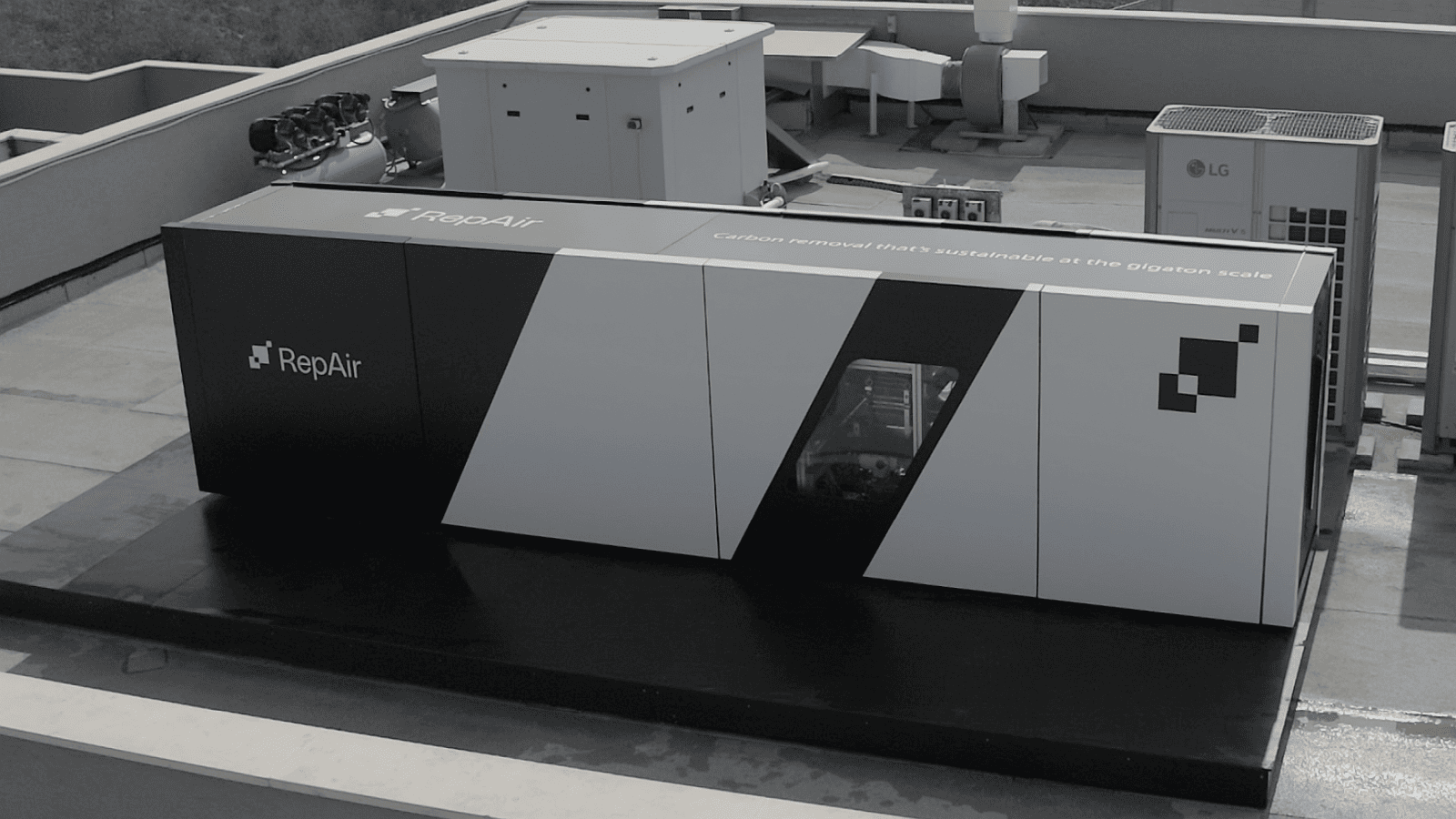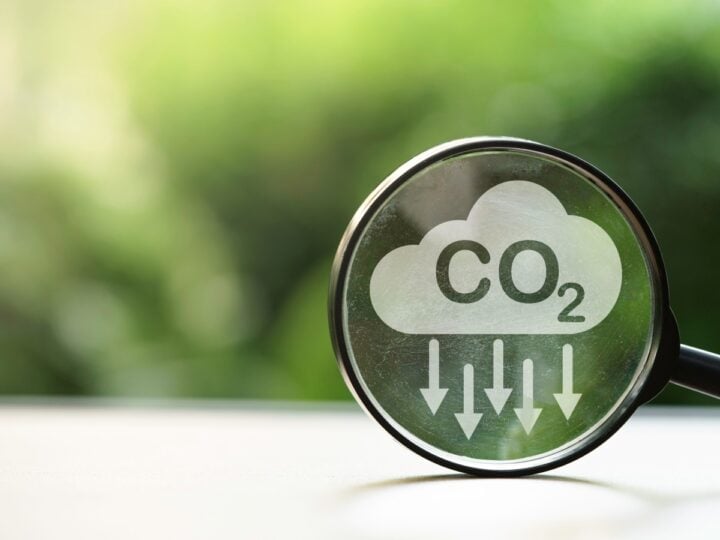An Israeli startup developing an innovative way to capture carbon emissions directly from the air unveiled its field prototype on November 29, demonstrating the technical performance of its solution in a significant step toward market viability.
As opposed to capturing CO2 from points of emission like industrial plants, direct air capture of the greenhouse gas is considered relatively expensive because carbon is more dilute in atmospheric air than it is near points of emission.
RepAir, which was founded in 2020 and is based in northern Israel, has developed a technology that it promises to be energy efficient, low-cost and flexible, making for easy deployment. It envisions that the solution will tackle CO2 emissions at gigaton scale, helping materialize the goal of net-zero emissions by 2050.
Its solution is inspired by fuel-cell principles and entails two electrodes separated by a membrane. Air passes through the first electrode, where electrical currents bind CO2 molecules as carbonate and bicarbonate ions. These ions pass through the membrane into the second electrode, where the binding is undone, and CO2 gas is drawn out and stored or utilized.
“As both the public and private sectors strive for a brighter future for our planet, it has become clear that emissions reductions alone are not enough. The global community must embrace additional carbon-negative solutions like carbon dioxide removal at scale,” says RepAir cofounder and CTO Ben Achrai.
“Our proprietary technology, which allows for a continuous carbon removal loop for maximized energy efficiency, in combination with its minimal maintenance needs, will enable rapid adoption of our solution around the world.”
Recent years have seen a slew of Israeli startups trying to tackle carbon capture using methods such as burying CO2 deep in the sea, drawing excess carbon into soil using fungi or converting it into products such as plastics that would have otherwise been made using fossil-derived carbon.
Fighting for Israel's truth
We cover what makes life in Israel so special — it's people. A non-profit organization, ISRAEL21c's team of journalists are committed to telling stories that humanize Israelis and show their positive impact on our world. You can bring these stories to life by making a donation of $6/month.








